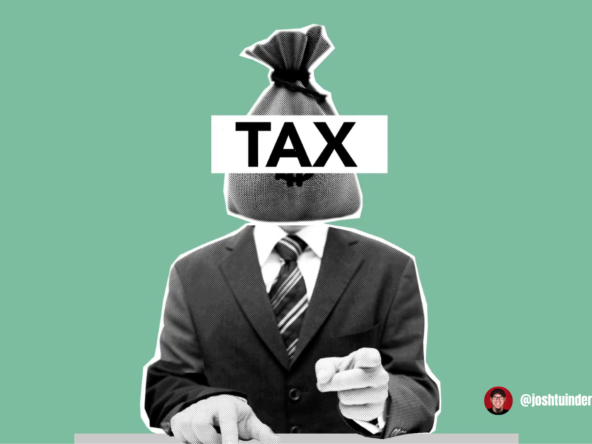Uncover how the upcoming presidential election could influence home values, buying trends, and market stability in the Grand Forks area.
No matter how many times you have seen an election come and go, each one can feel like a bit of a gamble, especially when November rolls around. You might find yourself wondering if now’s the time to make a move or if it’s better to wait until the election dust settles. Historically, presidential elections don’t have a massive or long-lasting impact on the housing market. But it’s normal to be curious about how this election could influence your decision to buy or sell a home this year. So, let’s dive into what you can expect from this year’s election, based on what we’ve seen in past election years.
How Do Elections Impact the Housing Market?
Election Year Home Sales
In recent election years, November has typically seen a slight dip in U.S. home sales. Ali Wolf, Chief Economist at Zonda, notes that while overall home sales usually remain steady during an election year, November tends to be a bit slower than usual. This temporary slowdown mainly happens because people feel a bit uncertain and hesitant to make big decisions like buying or selling a home when they think the election outcome could affect their finances or where they want to live. But here’s the good news: this hesitation is short-lived. Home sales typically bounce back in December and continue to rise into the following year. In fact, according to data from the Department of Housing and Urban Development (HUD) and the National Association of Realtors (NAR), home sales increased after nine of the last 11 Presidential elections.
Election Year Home Prices
Bankrate has found that home price appreciation during election years has outpaced that of non-election years. Their analysis of Case-Shiller data shows home prices rose an average of 4.84% in the nine election years since 1987, compared to an average of 4.44% in the 28 non-election years.
At first glance, this might make you think presidential elections are a boost for the housing market. But the reality is a bit more nuanced.
Here’s a breakdown of home price appreciation by year from 1987 to 2023 (election years in bold):
- 1987: 7.22%
- 1988: 7.23%
- 1989: 4.39%
- 1990: -0.69%
- 1991: -0.17%
- 1992: 0.82%
- 1993: 2.16%
- 1994: 2.52%
- 1995: 1.79%
- 1996: 2.43%
- 1997: 4.02%
- 1998: 6.44%
- 1999: 7.68%
- 2000: 9.29%
- 2001: 6.68%
- 2002: 9.56%
- 2003: 9.82%
- 2004: 13.64%
- 2005: 13.51%
- 2006: 1.73%
- 2007: -5.40%
- 2008: -12.00%
- 2009: -3.85%
- 2010: -4.11%
- 2011: -3.88%
- 2012: 6.44%
- 2013: 10.71%
- 2014: 4.51%
- 2015: 5.20%
- 2016: 5.31%
- 2017: 6.21%
- 2018: 4.52%
- 2019: 3.68%
- 2020: 10.43%
- 2021: 18.87%
- 2022: 5.65%
- 2023: 5.56
The worst election year for the U.S. housing market in recent memory was 2008 when home values plummeted 12% as the housing bubble burst. This crash wasn’t tied to the election itself but rather to the broader economic meltdown happening at the time. On the flip side, the best year for home price growth since 1987 was 2021, with home values soaring 18.9% amid record-low mortgage rates during the pandemic, a situation unrelated to a presidential election.
Mortgage Rates
Mortgage rates are a big deal when it comes to your monthly payment, so it’s only natural to wonder if they fluctuate during election years. According to Freddie Mac, mortgage rates have declined from July to November in eight of the past 11 presidential elections. Looking ahead to the aftermath of this year’s election, most forecasts suggest that mortgage rates ease slightly through the rest of 2024 and into 2025. If these predictions hold, we’ll likely see a continuation of the trend of declining interest rates leading up to the election, with rates staying on a downward slope afterward. Lower rates can mean lower monthly payments, but they also tend to bring more buyers into the market, which could drive up competition for available homes. If you’re waiting for rates to drop below 6%, you might find yourself in a bidding war, with fewer concessions to make a home more affordable.
Final Thoughts
While presidential candidates love to tout their economic plans, economists generally agree that they have little direct influence on the housing market. But don’t be surprised if candidates try to convince you otherwise.
The housing market might feel a bit confusing right now, even if you’re not sweating the election, but with the right information and a focus on local data, you can navigate it confidently.
For a more personalized data report for your home or neighborhood, feel free to reach out to me here. Let’s figure out your best move together!
Sources:
U.S. Department of Housing and Urban Development ( HUD )





